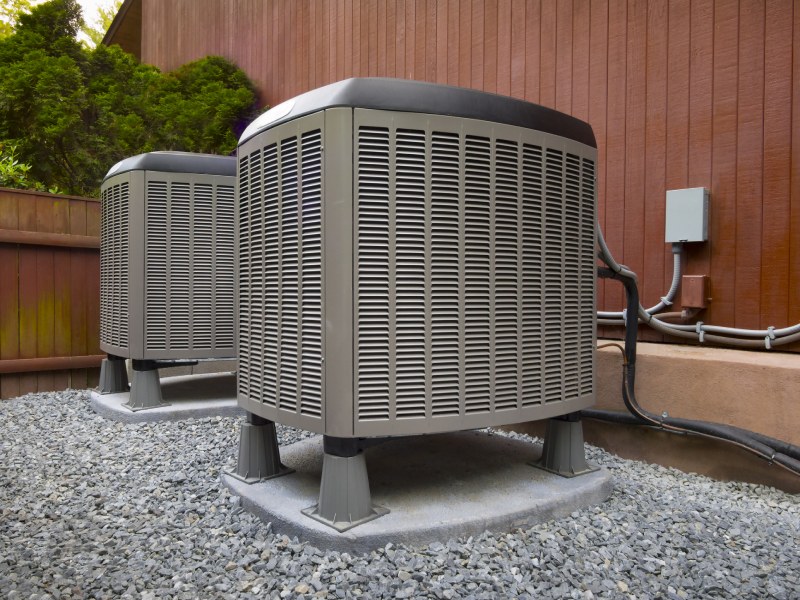When you start looking at residential cooling systems in Hillsborough, NJ, the conversation of heat pumps quickly comes up. If you’re replacing your AC because it’s old, you’ll likely need to replace your furnace soon. Consider these six benefits you’ll experience if you replace an old AC with a heat pump.
1. Can Easily Integrate With Residential Solar
Heat pumps run entirely on electricity, which can easily tie into any electrical system. If you have a residential solar power system, that can power your heat pump rather than the grid. The only caveat is that your solar infrastructure must produce and store enough power to support the heat pump.
Solar power can also power conventional air conditioners. However, solar cannot power traditional gas furnaces, which still require heating fuel.
2. Quieter Operation
Traditional air conditioners can be noisy and could become a nuisance if they are too loud. Manufacturers engineer heat pumps for quieter operation than traditional air conditioners. When you run heating mode, heat pumps contribute less indoor noise than a furnace.
3. Better Air Quality
HVAC systems of all kinds help improve air quality because they remove contaminants as air cycles through the air filter. Heat pumps usually run longer cycles than traditional systems. This usually means they cycle more air through the filter, allowing it to remove more contaminants.
4. Improved Household Comfort
Heat pumps don’t create as much of a temperature difference as traditional air conditioners. However, the overall experience with heat pumps is usually better for household comfort.
High-efficiency heat pumps operate to maintain a temperature rather than raise or lower it. A traditional air conditioner lowers the air temperature and then waits for it to rise again before cycling on again. By maintaining your home’s temperature, you experience a more consistent comfort level throughout your home.
5. Doubles as Heater Over Cold Months
One of the biggest benefits property owners appreciate about heat pumps is that they double as a heater. Rather than absorbing heat inside, the refrigerant flow reverses and absorbs heat from the air outside. It then expels that heat into the air inside to keep it warm.
Gas furnaces lose heat with the exhaust they produce, ranging from a 10% to 20% loss, depending on the unit. Heat pumps have no heat loss like gas furnaces because they don’t produce exhaust. The highest efficiency systems transfer 300% more heat than the energy they consume.
Furthermore, heat pumps don’t burn natural gas or propane to produce heat, so they also don’t produce byproducts. The byproducts commonly produced include carbon monoxide and airborne soot. Not only do heat pumps remove more contaminants, but they also prevent adding contaminants to your home’s air.
6. Reduce Heating Costs
There’s a difference between HVAC efficiency and operational cost. Just because a system is more efficient does not necessarily mean it’ll cost less to run. For instance, electric furnaces are 100% efficient but often cost more to run than gas furnaces.
Heat pumps run also entirely on electricity. However, they are substantially more efficient than gas furnaces, often resulting in substantial savings, especially during moderate temperatures.
You may be concerned about the frigid temperatures that settle around the area over the winter. Air-sourced heat pumps lose their efficiency when the outside temperatures get significantly below freezing. This leaves many homeowners concerned about insufficient heating and relying on an inefficient electric resistance heater. That’s why some homeowners opt for a dual-fuel system that incorporates a gas furnace as a backup heater. No matter what the temperature is outside, you always have the most efficient heating method available.
If it’s time to replace your air conditioner, consider investing in a system that both cools and heats your home. Call to schedule a new heat pump installation consultation with one of our experts at Griffith Energy Services.
Image provided by iStock




